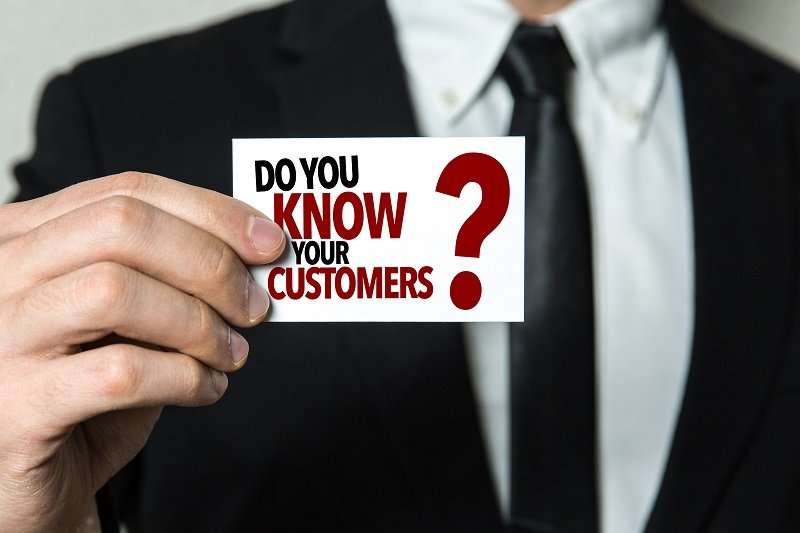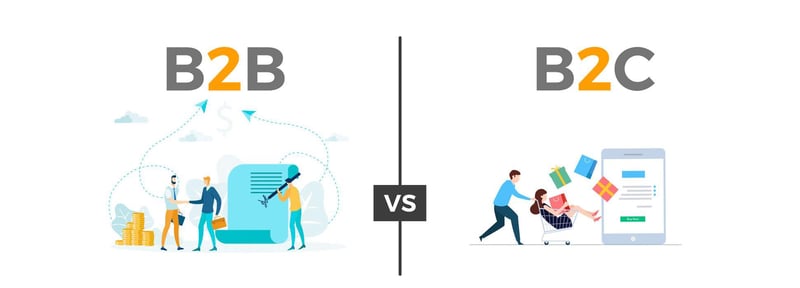B2B Marketing: Turn Prospects into Customers with Buyer Personas
If you're looking for a new B2B marketing strategy, try "turning your anonymous emails into people" using buyer personas. With Inbound Marketing, it's essential to know who your potential customers are. Creating a buyer persona is the first step in achieving this.

What Are Buyer Personas?
A buyer persona is a fictional representation of a business's ideal customer. By creating this consumer model, you will reach your target audience more efficiently, which increases productivity. To build a better business, cater to your customers' wants and needs above all else, which requires knowing the customers and their motivations.
When developing a buyer persona, identifying demographic traits is essential. How old is this person? Where do they live? What is their career? These are all questions that need to be considered while developing your personas.
Reasons to Use Buyer Personas
While many businesses claim that they know who their ideal customers are, not many can describe them in great detail. By using buyer personas, a more detailed description is revealed. These insights will bring key benefits, including:
1. You will be able to market to your desired audience more efficiently.
Success begins when time is used effectively, and having buyer personas to reference will save you time and resources. If you blindly engage with a general group of people, you may see some responses. Still, you'll undoubtedly increase your odds of conversions when targeting those you already know to have the problem your product or service will solve.
2. You will learn the most effective mode of communication with your customers.
Discovering your customer's age, career, spending habits, etc., and converting that information into a buyer persona will guide you to communicating with them most effectively. For example, using these detailed descriptions will dictate whether or not to market on social media – particularly if your customers are in an older age bracket, as they might not be viewing any form of social media marketing. If you know that to be the case, you can spend less time and money on that communication and focus it elsewhere, like email marketing or blogs. Ultimately, you'll have the most success reaching your customers "where they are."
3. You will be able to craft the right message and fulfill your content objectives.
Knowing your audience is critical in content strategy. Your customers' needs must come before all else, so having a solid understanding of their pain points (challenges) is key to crafting the right message that addresses them. Think of buyer personas as the foundation on which you build your content strategy, as they'll help you create compelling messaging that resonates with the right audience.
4. You could discover that your business has more capabilities than you previously knew.
Throughout this process of understanding your ideal customer and how to cater to their needs best, you will discover that your business can accomplish more than you ever knew was possible. A buyer persona can reveal what was missing in your marketing strategy and open a gateway to new ideas. You will be able to learn new customer challenges and become the solution. This may require you to change tactics in some situations, which forces you to obtain more skills. These skills may be useful in later marketing scenarios, adding to your overall list of capabilities.
Interested in learning more about crafting the perfect buyer persona? Learn more here.
The Difference between B2C and B2B Buyer Personas

First, B2C marketing means business-to-consumer, whereas B2B means business-to-business. The most significant difference between the two is that B2C customers make individual decisions, and B2B customers are a part of a larger group that makes joint decisions. This contrast impacts the creation of buyer personas drastically.
A B2C customer may make impulsive purchase decisions based on emotions rather than logic, but a B2B customer would make strategic choices about what they are buying. While a B2C customer may be smart about what they're purchasing, a B2B customer is under more pressure to research a product before buying because they're investing the company's money and must be sure it's the best choice. Sometimes, B2B customers require background knowledge and trial runs before making significant choices.
While building their personas, a B2C customer would be easier to describe because it is based on an individual. In contrast, a B2B buyer persona must represent a large group of people that make up an organization. To make creating a B2B persona more effortless, you'll need to consider the business's leading operators and other key team members.
A B2B buyer persona displays the customer's motivations, needs, pain points, hesitancies, and history. A B2C buyer persona will do the same while detailing the client's spending habits, favorite brands, influences, and how they interact online with other products. buyer personas matter
How to Build a B2B Buyer Persona
A solid understanding of the B2B buyer's journey and their motivation is key in B2B marketing and sales. To create a B2B buyer persona, you first need to identify your buyer's job, demographic information, firmographic information (a collection of descriptive attributes used specifically for B2B), goals, challenges, spending habits, what a day in their life looks like, what their idea of success looks like, and what would make them hesitate to make a purchase.
These factors create a persona to help your marketing strategies become more customizable. Once you have completed the research, organize it into a template, allowing you to view details easily. You'll then be able to reference this customer model and fine-tune your marketing decisions.
I've built my buyer personas. Now what?
After completing your ideal customer profiles, you may ask yourself, what do I do with them?
By creating content intended for those specific personas, you'll begin to see the rewards of targeting your customers' particular needs and pain points. You can control the style and tone of your writing, demonstrate how your services will solve your customers' problems, and use the best platform to publish your content – all based on your targeted buyer personas.
Many smaller companies don't have an in-house marketing team, which can cause them to struggle between their expertise and the marketing world. Managing multiple sides of a business can be challenging, so these clients try to find ways to streamline their marketing content while remaining within their budget. Using buyer personas created for each business, we can provide the most efficient way of producing top-tier marketing content for clients.
This personalized marketing approach has proven to generate the most customer activity. Simply put, buyer personas matter; know your customers, and soon they'll be interested in knowing more about you. role of buyer personas
This content is also available in:
- German: B2B-Marketing: Mit Buyer Personas Interessenten in Kunden verwandeln
- Spanish: Marketing B2B: Convierta prospectos en clientes con Buyer Personas
- French: Marketing B2B : Prospects → Clients avec les personas
- Italian: Marketing B2B: Trasformare i prospect in clienti con le buyer personas
- Romanian: Marketing B2B: Transformați leadurile în clienți cu Buyer Personas
- Chinese: B2B 营销:利用 "买家角色 "将潜在客户转化为客户









Leave a Comment